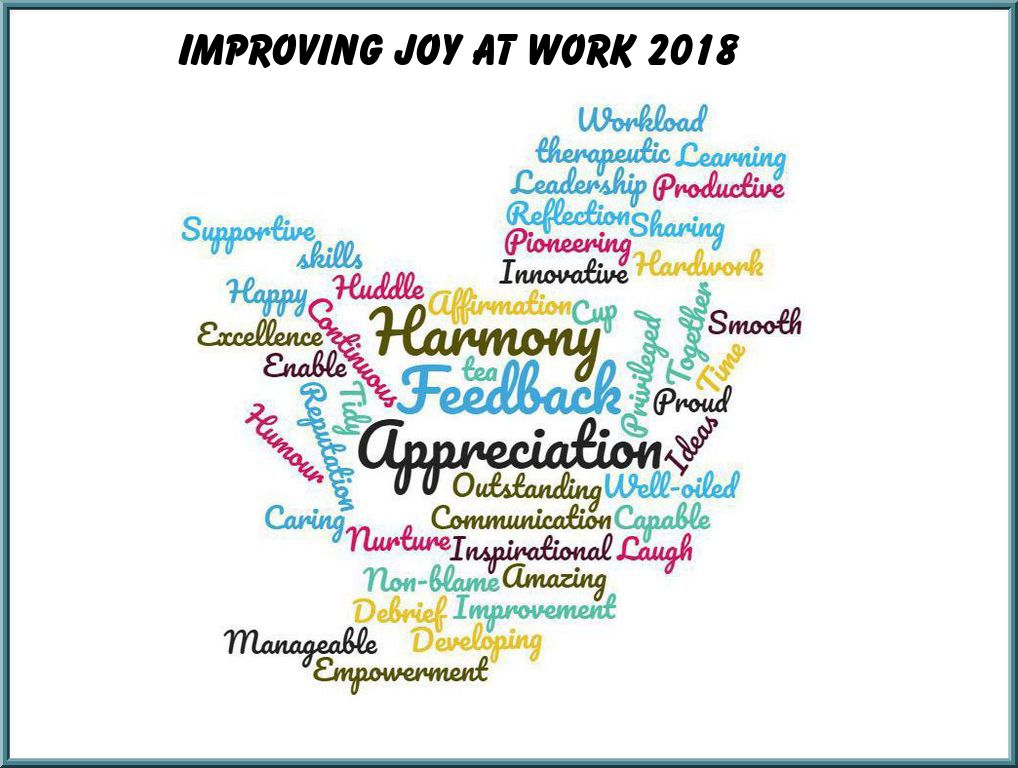The Atlas of Shared Learning
Case study
Cuckoo Lane surgery: an innovative, nurse-led general practice delivering high-quality care
Leading change
The practice nurse leadership team at Cuckoo Lane surgery introduced a system of twice daily five minute huddles with all staff, where clinical and operational practice issues are presented to address unwarranted variation in staff communication across the practice. The change in practice has resulted in positive patient and staff feedback.
Where to look
The Cuckoo Lane general practice is a nurse-led practice with six nurse practitioners, three practice nurses, two health care assistants and practice administrators, with a GP for approximately three-four hours every day. Nurse Practitioners lead all clinical governance.
The practice nurses completed a review (patient and staff feedback) and unwarranted variation was identified with regard to disparities in communication of policy, working and engagement, which were all having an impact on care, quality of provision and the streamlining of clinical and administrative processes.
The practice employs several members of part-time staff. They reported that they were finding it difficult to keep on top of practice development and patient updates. The five minute five-point huddle was started to address this variation in practice. As a nurse-led practice was committed to continually improve the service that they deliver, like most practices, an essential component of which is a well-functioning team with good communication.
What to change
Nurses at Cuckoo Lane have always had a very proactive approach to their communication between staff. Whilst looking through the review of patient and staff feedback, the nurses recognised that part of the variation was addressing communication across the disciplines. The practice also recognised that the introduction of the huddle could also help to identify and address unwarranted variation in other areas, for example antibiotic prescribing. The huddle is a place where practice, clinical judgement, prescribing patterns and recommendations in different clinical presentations can all be discussed, so that patterns in prescribing variation can be addressed.
The driver for change was to ensure that all staff would be well-informed of new policies, initiatives and guidance in a timely manner. This is targeting excellence in practice and to promote minimal variation in practice. The nurses were supporting all staff to be up to date with all individual cases, encouraging a collaborative, integrated working environment and looking to include all staff in discussions about patient care, highlighting any particularly vulnerable patients and also paying close attention to streamlining the care process.
How to change
The nurse leadership team developed a five point huddle. This was a system of twice daily 5-10 minute discussions with all staff, where clinical and operational practice matters are discussed and presented. It is an open forum where all members of the team have the opportunity to raise points. Crucially, to the effectiveness of the communication, the huddle is immediately written up and notes circulated to all team members to provide an update on current matters. The nurse leaders wanted to empower all staff, to make sure they feel engaged and to encourage all staff to share the same messaging to patients.
Learning from models used in industry and other non-medical organisations, the idea was a very brief meeting where all staff stand up, and are giving the opportunity to contribute. The huddle was introduced for five minutes before the start of morning surgery and again before the start of afternoon surgery. As time progressed, staff recognised the benefits of bringing everybody together, and the value of the bite-size information.
Adding value
- Better outcomes – More cohesive messaging for patient care has been achieved, which has seen a reduction in patient and carer complaints as well as increases in positive feedback. Trends towards improved discussions, clinical care planning and identification of those with vulnerability are emerging.
- Better experience – Qualitative feedback from patients has been very positive and included comments such as; “well organised”, “knowledgeable” and “timely”. Better experience is difficult to capture quantitatively, but the patient-clinician relationship at the nurse-led surgery has improved and anecdotally both staff and patients are feeling empowered as a result of the huddle. In a recent short staff survey a number of staff highlighted that the huddle was an important and a positive attribution to the excellent team work at Cuckoo Lane practice:

- Better use of resources – Including staff in regular communication through the brief daily huddles has everyone informed and fully-trained, as well as aware of all guidance, which has supported a better use of resources.
Challenges and lessons learnt for implementation
- The practice nurses have suggested that in order to make a positive change, it is vital to listen to patients and staff to hear what is needed and to engage them in each step of the process, regularly checking back for feedback.
- Effectiveness attributable to the leadership, open dialogue, enhanced communication and taking action straight away.
- The supportive working environment is striving for excellent service provision. The practice believes that this model is sustainable and can be replicated in other areas with appropriate support, leadership and a learning environment.
Watch this short video and learn how nurses from Cuckoo Lane, a nurse-led GP practice, identified and addressed unwarranted variation in staff communication across the GP practice.
Find out more
For more information contact:
- Julie Belton, Nurse Practitioner/Director, Cuckoo Lane Surgery, julie.belton@nhs.net
